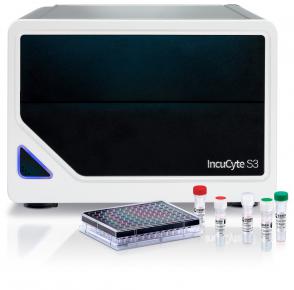September 7, 2017, 7 pm CEST
Chia-Wei Li, PhD, The University of Texas M. D. Anderson Cancer Center
Here we reveal PD-L1’s immunosuppression activity is stringently modulated by the spatial restraints between ubiquitination and N-linked glycosylation. We identified GSK3beta as a novel PD-L1 interacting protein capable of inducing phosphorylation dependent proteasome degradation. The essence of PD-L1 N192, N200 and N219 glycosylation suggests it antagonizes GSK3beta binding. In this regard, only non-glycosylated PD-L1 forms a complex with GSK3beta and beta-TrCP. More importantly, activation of GSK3beta-mediated PD-L1 degradation by TKI can reduce membrane PD-L1 expression and thereby enhance anti-tumor immunity. To test T cell-mediated cancer cell killing in vitro, we employed a time lapse microscopy, IncuCyte, to monitor RFP-tagged BT549 cells and activated PBMC interaction over a five day period. Massive cancer cell death was observed in glycosylation deficient cancer cells, suggesting glycosylation of PD-L1 is required for its immunosuppression. Together, our results link ubiquitination and glycosylation pathways with stringent regulation of PD-L1, proposing a new therapeutic strategy to enhance cancer immune therapy efficacy.
Learning objectives:
- Molecular mechanism of PD-L1 regulation in cancer cells
- Immunosuppressive nature of triple negative breast cancer
- Using in vitro co-culture system to analyze T cell-mediated cancer cell killing effect
Register now








